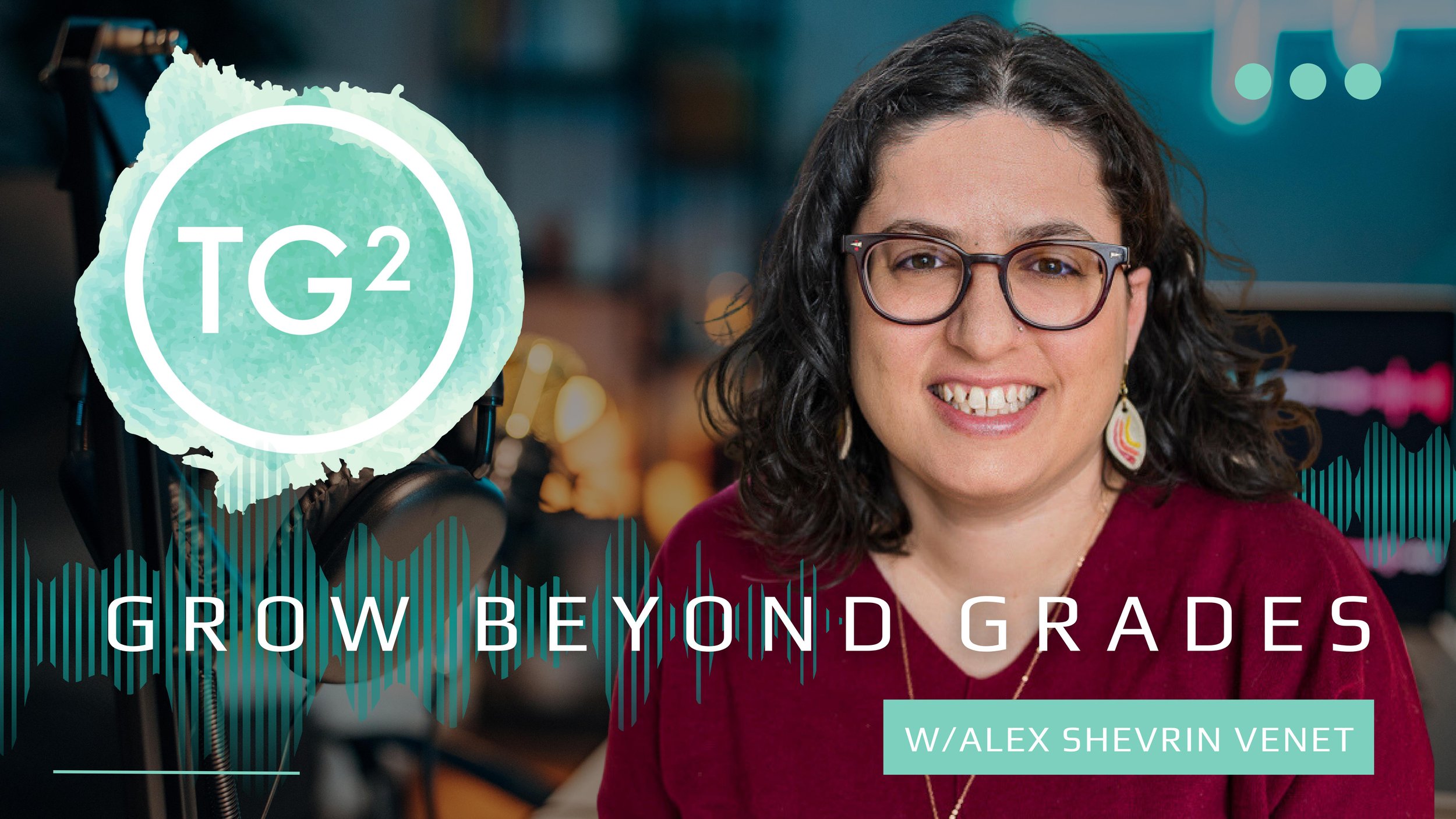Where the Learning Happens w/Mike Rutherford
In his innovative teacher-designed platform, gotFeedback, Mike Rutherford has created a centralized space for communication and documentation, helping students and teachers record, reflect on, and share the rich narratives of student learning journeys, enhancing the educational experience for all involved.
Multimodal Composition w/Angela Stockman
Angela Stockman equips educators with practical strategies and tools to design equitable, student-centered classrooms where all learners thrive. Her work focuses on empowering diverse voices through multimodal composition and assessment, fostering confidence and creativity in every student.
Centering Student Strengths w/Dr. Kelsie Reed
Dr. Reed provides practical tools and resources to cultivate positive, strength-focused environments for all students. Her work centers on dismantling deficit-based narratives, particularly for students from historically marginalized communities.
Does Testing Miss the Mark? w/Akil Bello
Our guest on the Grow Beyond Grades podcast is Akil Bello, an expert in educational access with over 30 years of experience. Akil began his career as a test proctor in 1990 and has since held roles from CEO to consultant, working to improve outcomes for underserved students.
Make Teaching Sustainable w/Paul Emerich France
David Frangiosa interviews Paul Emerich France, founder of the Sustainable Teaching Project, exploring shifts that teachers can make to avoid burnout, including assessment practices that invite and empower student participation in their own learning.
Assessing Holistically w/Dr. Carissa McCray
Michelle Cottrell-Williams interviews Dr. Carissa McCray on how teachers can better create equitable, inclusive learning environment that assess learners holistically. Dr. McCray explains why a culturally competent education is important for everyone in our globalized world, and the all-important role assessment plays in reaching all students.
Leveling up w/Fabiola Torres
Arthur Chiaravalli interviews Fabiola Torres, an online Ethnic Studies professor and Certified Faculty Developer at Glendale Community College. During the pandemic, she's led nationwide workshops and courses on applying equity-minded methods such as culturally responsive teaching in the online environment, humanizing online teaching and learning and ungrading practices.
Undoing the Grade w/Jesse Stommel
Vanessa Ellis interviews Jesse Stommel, author of Undoing the Grade: Why We Grade, and How to Stop. Originally aired as part of a special Community Gathering, the interview explores Jesse’s experiences as an ungrading teacher and how his stance is informed by larger questions of equity, care, and the humanity of both teachers and learners.
The Mastery Transcript w/Mike Flanagan
Lisa Wennerth interviews Mike Flanagan, CEO of the Mastery Transcript Consortium (MTC), a growing group of high schools creating a digital high school transcript that opens up opportunity for each and every student—from all backgrounds, locations, and types of schools—to have their unique strengths, abilities, interests, and histories fostered, understood, and celebrated.
Equity-Centered Trauma-Informed Education w/Alex Shevrin Venet
Lisa Wennerth interviews Alex Shevrin Venet, author Equity-Centered Trauma-Informed Education. Venet explains how schools can become more truly trauma-informed when they center equity and employ “proactive priorities” in planning and decision making. A long time ungrader, Alex examines how the same principles can be used to make ungrading more inclusive and equitable.
Telling the Whole Story w/Nate Bowling
Nate Bowling teaches Social Studies at a US Embassy School in Abu Dhabi in the United Arab Emirates. He is a past Washington State Teacher of the Year and National Teacher of the Year Finalist. He and his wife blog about living and teaching overseas at BowlingsAbroad.com and he is the host of the Nerd Farmer Podcast.
Toward Assessment Utopias w/Juuso Nieminen
Lisa Wennerth interviews Juuso Nieminen, whose research focuses on the student perspective in assessment, and particularly how assessment shapes students’ identities in higher education and beyond. By entering into assessment partnerships with students, can teachers disrupt the usual power relations of grading and foster student empowerment?












